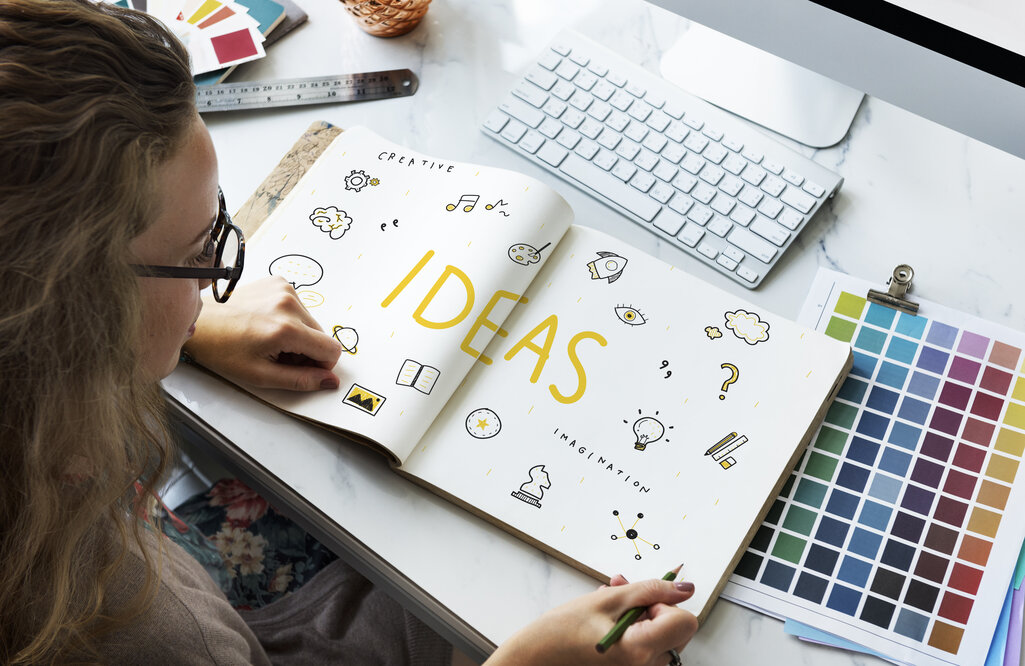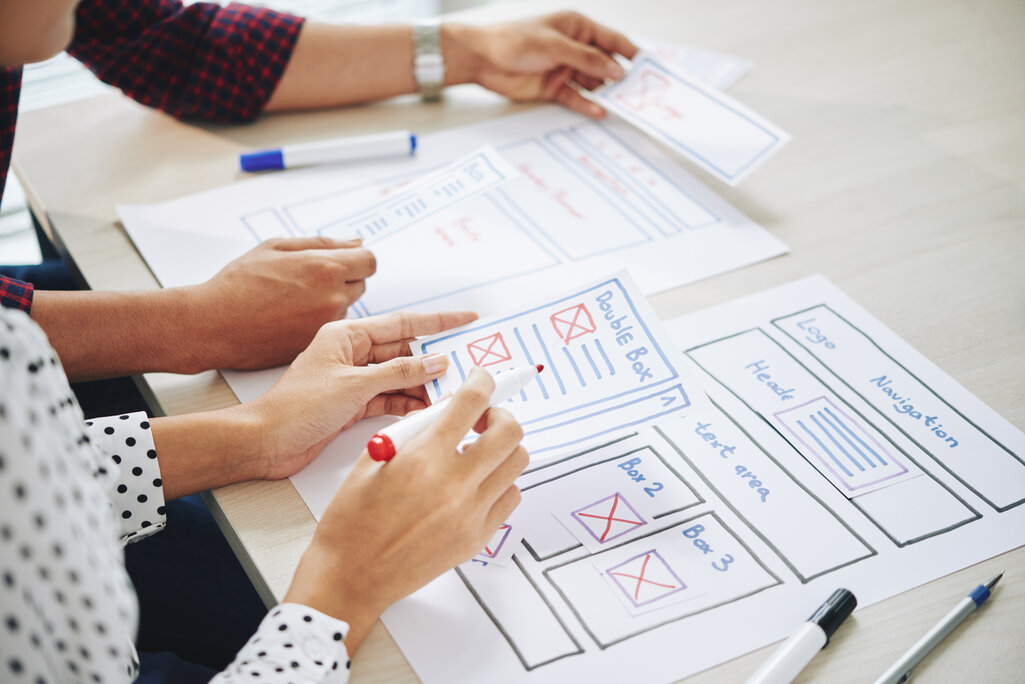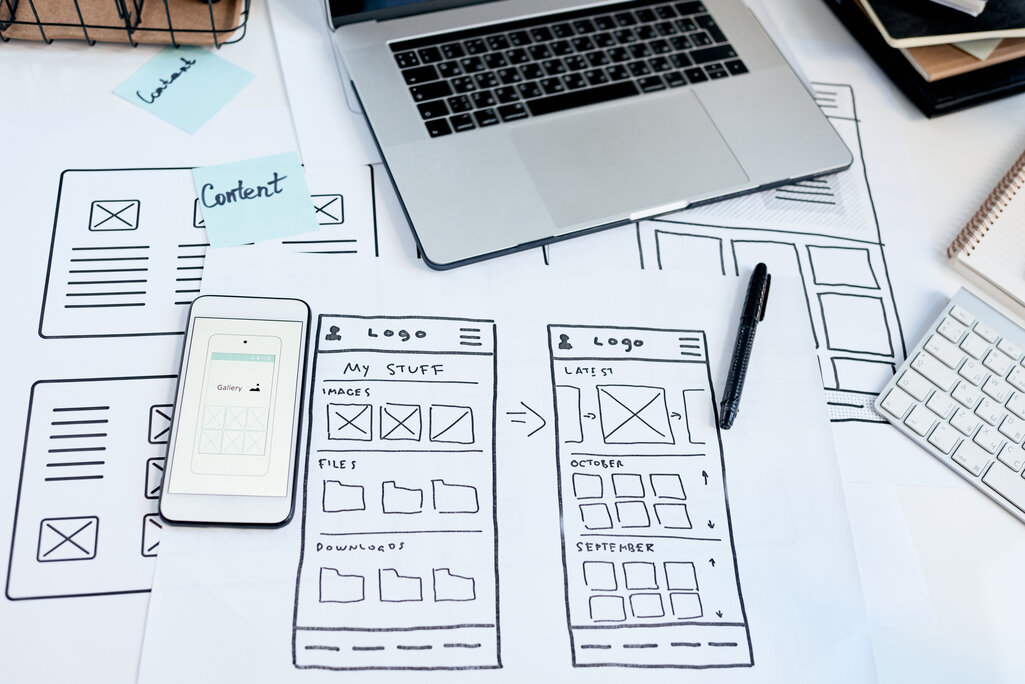Design & Branding
Corporate Identity
Media Design
User Interface Design
User Experience
Welcome to the starting point of our digital expedition Design & Branding. Together we will discover the numerous possibilities in the field of Design & Branding on this expedition. Find out how we help companies to strengthen their recognition value with a clearly defined corporate identity and to improve their corporate image through targeted media design. You can also read about UI design which can be used to meet different user needs as well as to provide the user with an interactive and positive user experience.
All your stuff packed and snowshoes strapped on? Then we're off!
The term corporate identity (CI for short) is composed of the words ‘corporation’ and ‘identity’. This includes all corporate activities that build on each other in terms of content and strategy. Corporate Identity therefore stands for much more than the mere corporate communication. Rather, it is the essence of strategic corporate management and, as much it shapes the appearance, behaviour and communication of a company. In short: Corporate Identity refers to all the characteristics that make up a company.

In order to ensure that the self-image of a company is reflected externally, a mission statement and rules of conduct are defined in advance as part of the corporate identity. This ensures that communication and actions are in line with the strategic orientation, positioning and corporate goals. The next step is to formulate individual goals in such a way that suitable measures can be taken on this basis. In the best case, strategy, design and communication go hand in hand, so that both internal and external parties are optimally involved in the management of the company.
Media design generally encompasses the creative handling of media. The focus is on the production of creative media products, which takes place in close coordination with different interest groups. Planning, conception and visualization are essential steps in the development process on the way from the idea to the designed product. As diverse as the products are, so diverse are the areas of application. The aim is always to use the creative potentials and prerequisites of the respective medium and to process them into a coherent final product.

Depending on the focus, the basis of a functioning media design is a sound knowledge of media techniques as well as media practices. On the one hand, this includes basics in electronic image processing, general optics, programming and information technology. On the other hand, there is also deep knowledge of aesthetics, layout and design. This includes typography, layout and colouring as well as corporate design, printing or web design. The creative process usually is project-related and ends with the finished media product.
User Interface Design (UI Design for short) is about designing a digital interface conceptually, visually and technically in such a way that humans and machines can interact optimally. The central role is played by the user interface, i.e. the user interface that serves for interaction between user and application. Successful UI design combines content, function and navigation and brings them into a coherent overall concept. It also takes current developments and trends into account and implements them in a targeted manner in accordance with a company-specific corporate identity and individual requirements.

UI Design is based on scientific findings, which have helped to develop measures and methods to implement design and development processes in a representative manner and to measure their success using relevant KPI’s (Key Performance Indicators). Depending on the field of application and individual project requirements, these may vary, but the first stage is usually a well-founded analysis. This provides answers to the subjective utility value of planned content and functions, to accessibility and compatibility, as well as to performance, efficiency and appearance.
User Experience, or UX for short, refers to a person’s user experience with an analogical or digital system. Accordingly, it encompasses the experiences, perceptions and feelings that someone has when using a product or service. The focus here is on interaction and on the feelings and impressions associated with it. The latter can be very subjective, as they depend on emotional and aesthetic factors such as an appealing design or a positive mood during use.

A positive user experience is created when the user can easily and conveniently achieve his individual usage goals, when he can immerse himself in a smooth interaction of operation and system feedback, and when he finds information presented in a clear and intelligent manner. Accordingly, several factors play a role in ensuring a positive user experience. In addition to a clear user interface and an appealing design, intuitive usability, the context in which the system is used as well as the user’s previous knowledge and experience in addition to his online behaviour and expectations should be mentioned here.